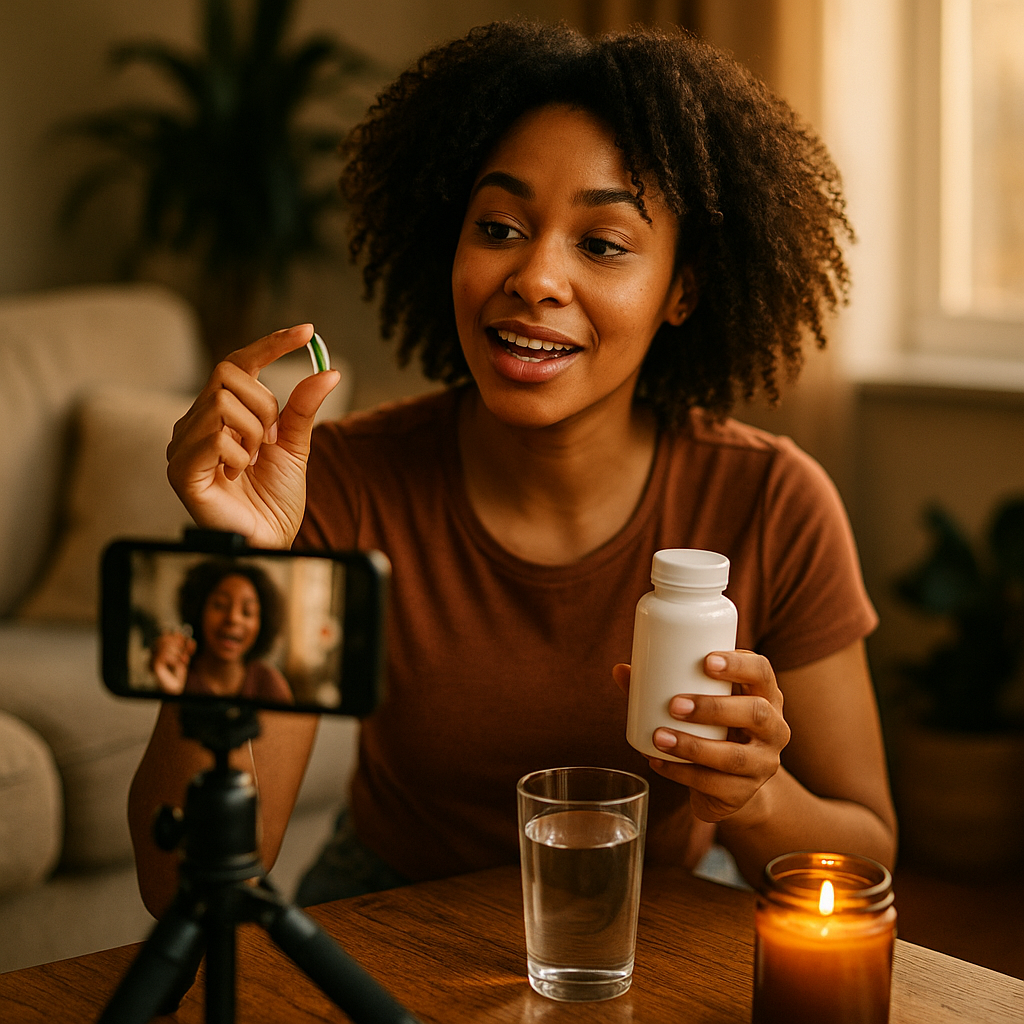The role of influencers in de-stigmatizing conversations in wellness and healthcare has grown dramatically, making once-taboo topics mainstream and approachable. Social media voices now lead the way in opening up honest discussions about mental health, sexual wellness, and chronic conditions. But how exactly do they reshape public perception, and what can we learn from their impact?
How Wellness Influencers Spark Open Conversations
In recent years, wellness influencers have become trusted sources for health-related information on platforms like Instagram, TikTok, and YouTube. Their authenticity and relatability have helped break down barriers, enabling audiences to discuss issues previously shrouded in silence.
These influencers often share personal stories, struggles, and successes related to:
- Mental health challenges
- Sexual wellness and reproductive health
- Lifestyle management of chronic conditions
By sharing lived experiences, wellness influencers create a sense of community and trust, prompting followers to seek help and have honest conversations about their own health. Their reach extends beyond conventional media, amplifying voices that were once marginalized.
Social Media’s Role in Healthcare Stigma Reduction
The secondary keyword, social media wellness campaigns, underscores the vital part that coordinated online efforts play in normalizing healthcare dialogue. Social media wellness campaigns enable influencers, healthcare brands, and community organizations to collaborate. These initiatives use hashtags, live Q&As, and viral challenges to encourage widespread participation.
For example, #SelfCareSunday and #BellLetsTalk campaigns have encouraged millions to discuss mental health. Influencers actively support these campaigns, creating safe online spaces for sharing experiences. Real-time interactions allow influencers to respond to questions, debunk myths, and provide resources, fostering a proactive approach to health topics.
The Impact of Patient Advocates on Medical Misinformation
Patient advocates—many of whom are influencers with lived experience—play a pivotal role in the battle against medical misinformation. These individuals blend personal credibility with evidence-based information, guiding audiences towards reputable healthcare sources and away from unproven or harmful treatments.
By working closely with healthcare professionals, patient advocates:
- Interpret complex medical research into accessible advice
- Address common misconceptions openly
- Highlight the importance of professional guidance
According to a 2025 Forbes Insight report, nearly 40% of Gen Z trusts health advice from social media influencers more than from traditional sources—underlining the need for credible advocates to partner with experts and prioritize accurate, transparent communication.
Influencer-Brand Partnerships: Driving Inclusive Wellness
The landscape of influencer marketing in wellness has evolved to prioritize inclusivity and destigmatization. Influencers increasingly collaborate with wellness brands, healthcare startups, and non-profits to launch campaigns that reach diverse audiences. Key characteristics of these partnerships include representation, education, and accessibility.
Successful collaborations focus on:
- Featuring diverse body types, abilities, genders, and ethnic backgrounds
- Promoting products and initiatives that address real community needs
- Ensuring messaging centers around mental, physical, and emotional wellbeing
Brands benefit from improved authenticity and consumer trust, while influencers gain a platform to amplify causes that matter. This synergy helps bring wellness conversations to marginalized populations and increases overall industry credibility.
Building Credibility Through Transparency and Expertise
Audiences crave honesty. The best influencers in healthcare reveal both successes and setbacks, building rapport that encourages authentic engagement. To boost their authority, many influencers:
- Disclose partnerships and sponsorships transparently
- Highlight credentials, expert consultations, or lived experience
- Encourage followers to seek verified medical advice for serious issues
In 2025, followers expect influencers to regularly cite peer-reviewed studies or bring in board-certified professionals for collaborative content. This approach supports Google’s EEAT (Experience, Expertise, Authoritativeness, and Trustworthiness) guidelines and helps audiences distinguish reliable advice from anecdote or opinion.
The Future of Digital Advocacy in Wellness
The impact of digital health advocacy continues to grow. As technology advances, influencers are using video content, live-streamed support groups, and virtual reality tools to further spark dialogue and empathy. Emerging platforms reward transparency, diversity, and community engagement over mere follower counts.
In 2025, digital influencers are not just sparking conversations—they are driving systemic change. They are working alongside healthcare providers to address gaps, challenge outdated norms, and improve healthcare access for all.
Conclusion
Influencers have revolutionized the conversation around wellness and healthcare by de-stigmatizing once-taboo subjects, spreading accurate information, and building inclusive communities. By blending transparency, expertise, and relatability, they empower millions to speak openly and prioritize their wellbeing. The ongoing rise of influencer-led advocacy promises a more informed, connected future for global health dialogues.
Frequently Asked Questions
-
How do influencers help reduce stigma in healthcare?
Influencers reduce stigma by openly discussing sensitive topics—such as mental health, sexuality, and chronic illness—on accessible platforms. Their honesty and relatability help normalize these conversations, empowering others to speak up and seek care.
-
Can influencer-led wellness advice be trusted?
Wellness advice from influencers is trustworthy when they rely on evidence-based information, disclose partnerships, and collaborate with medical experts. Seek influencers who are transparent about their sources and emphasize seeking professional guidance for serious health concerns.
-
What role do social media wellness campaigns play?
Social media wellness campaigns, often launched by influencers and brands, encourage public participation in mental health, sexual wellness, or disease awareness conversations. These campaigns break taboos, increase resources, and foster supportive online communities.
-
Why are influencer-brand partnerships important for wellness marketing?
Influencer-brand partnerships boost inclusivity and authenticity in wellness marketing. By collaborating with credible influencers, brands reach diverse audiences, support de-stigmatizing initiatives, and gain consumer trust through relatable, evidence-based messaging.
